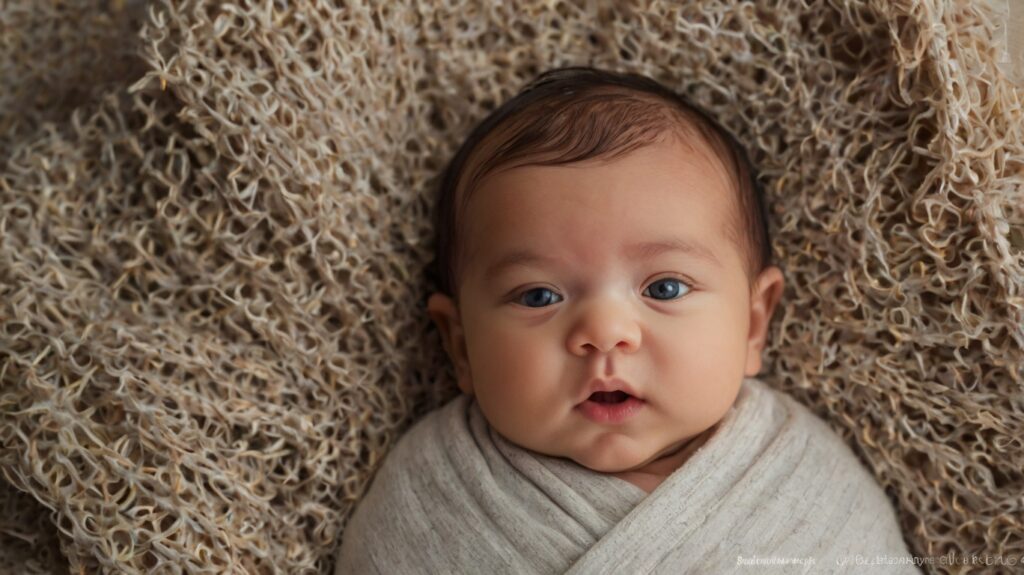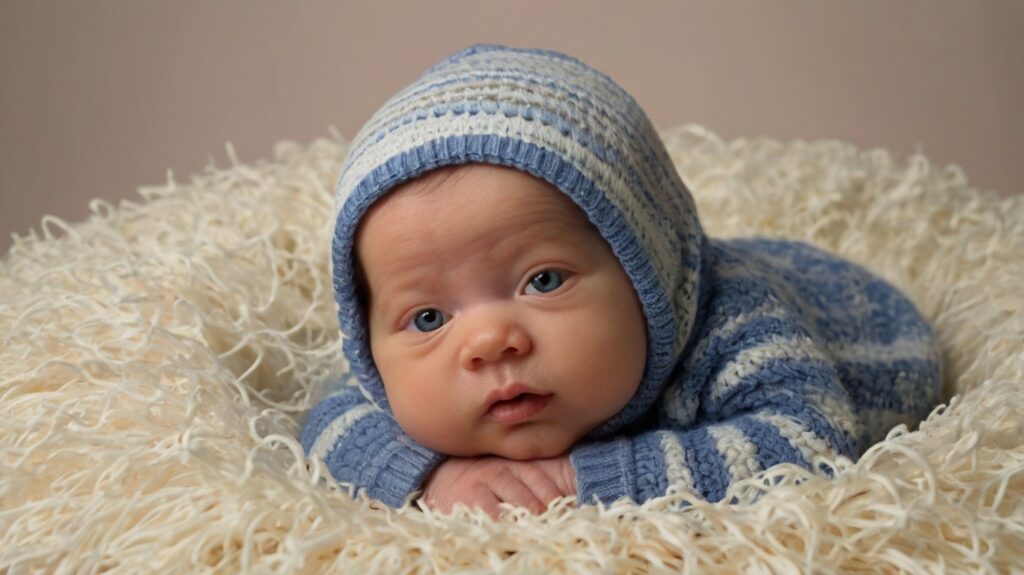
At seven weeks old, your baby is continuing to grow rapidly and becoming more aware of their surroundings. This age often marks the transition from the newborn phase to early infancy, with increasing alertness and social engagement. While your baby still needs plenty of sleep and frequent feedings, you may notice exciting signs of personality and interaction emerging.
Physical Development
By seven weeks, your baby’s motor skills are improving. They may hold their head up better during tummy time and start to push up on their arms. Movements become smoother and more purposeful—your baby might begin reaching for objects or bringing their hands to their mouth more frequently. Reflexes like grasping and rooting are still present but gradually give way to intentional actions.
Muscle strength is developing, and babies often kick and stretch with increasing energy.

Social and Cognitive Growth
Seven weeks is often when babies start to smile socially in a more consistent way. They may respond to your voice, make cooing sounds, and begin to enjoy watching faces and objects. Your baby’s vision is improving, allowing better tracking of moving things within their limited range of focus (about 8 to 12 inches).
This increased engagement helps lay the foundation for early communication and bonding, encouraging you to talk, sing, and interact frequently with your baby.
Feeding at Seven Weeks
Feeding patterns remain frequent, typically every 2 to 4 hours. Breastfed babies may nurse about 8 to 12 times daily, while formula-fed babies usually take in larger amounts per feeding, around 3 to 5 ounces. Feeding sessions often become more efficient as your baby’s sucking strengthens.
Growth spurts may cause your baby to feed more frequently and appear fussier than usual; this is normal and helps increase milk supply if breastfeeding.
Watch for hunger cues such as rooting, lip-smacking, and fussiness, and feed on demand to meet your baby’s needs.

Sleep Patterns
At seven weeks, babies still sleep roughly 14 to 17 hours per day, but sleep may begin to consolidate into slightly longer stretches at night. Frequent waking to feed remains common, as newborn sleep cycles are short and active sleep is predominant.
Your baby may show signs of tiredness—yawning, eye rubbing, fussiness—and establishing calming pre-sleep routines like dim lights and gentle rocking can promote better sleep habits.
Soothing and Comforting
Pacifiers can continue to provide comfort, especially when your baby wants to suck for soothing rather than hunger. Skin-to-skin contact remains valuable for emotional bonding and physiological regulation.
Swaddling is often still effective in helping your baby feel secure and minimizing startle reflexes during sleep.

When to Contact Your Pediatrician
Contact your pediatrician if you notice:
- Feeding difficulties or poor weight gain
- Fewer than 6 wet diapers in 24 hours
- Excessive inconsolable crying
- Signs of illness such as fever, vomiting, or lethargy
Final Thoughts
At seven weeks, your baby is growing, learning, and starting to show early signs of personality and social awareness. Though feeding and sleep still require much of your attention, this stage brings increasing interaction and connection.